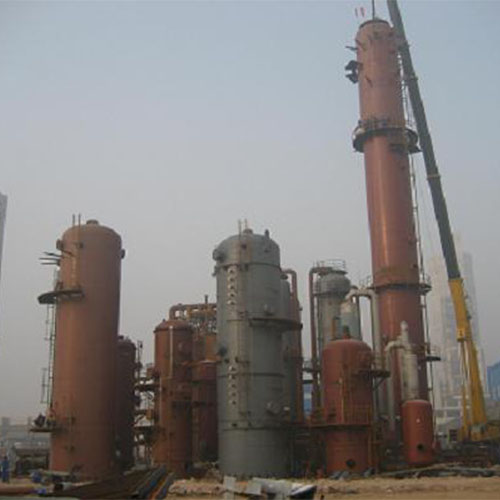Africa’s richest man is building one of the world’s largest oil refineries.
Nigeria has an issue: The nation is one of the world’s high oil producers, however it doesn’t have sufficient gasoline to gas its struggling economic system.

On the outskirts of Lagos, Africa’s richest man is building what he says is a solution to the country’s gas crisis: A massive, 650,000 barrel-per-day refinery that’s designed to turn the country’s crude oil into gasoline for hungry shoppers.
In a particular report by CNN, Aliko Dangote, a concrete magnate who’s worth an estimated $15 billion, said the refinery and petrochemical plant has the potential to fulfill Nigeria’s every day requirement of 445,000 to 550,000 barrels of gas, with spare capacity to export.
“This one we’re building will satisfy a hundred% of the [gas] want of Nigeria,Dangote told CNNMoney.
There are causes to believe Dangote will meet his goal of bringing the factory online by late 2018: He has already completed several major tasks in Africa, including the world’s largest sugar refinery and cement manufacturing unit.
If his refinery venture is profitable, Nigeria may even develop into an exporter of gasoline and different petroleum products to the area.
That could be a change welcomed by long-suffering Petroleum Machinery manufacture Nigerians. The country’s 4 state-owned refineries are at the moment operating at just 5% capacity following many years of poor upkeep, mismanagement and corruption.
For average citizens, the lack of domestic refining capacity has meant frequent power cuts and eight-hour lines at gas stations.
“It is insane,mentioned Mansur Ahmed, a director of corporate communications at Dangote Group.
“Nigeria produces between 2.2 million and a pair of.5 million barrels of crude per day, but shouldn’t be capable of process more than about 100,000 barrels per day./p>
In the meantime, plunging crude prices have pushed Africa’s largest economic system to the brink of recession. Energy accounts for about 35% of Nigeria’s gross domestic product, seventy five% of government revenue and 90% of export earnings.
The government is now racing by way of its overseas forex reserves, and a shortfall of $eleven billion in its 2016 finances has pressured officials to debate a possible money infusion with the World Financial institution.
Dangote, for one, is just not shedding any sleep over low oil costs.


